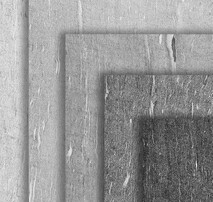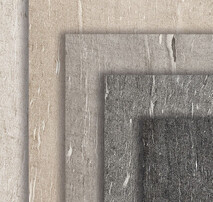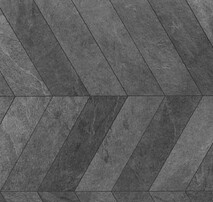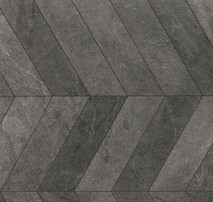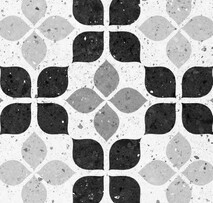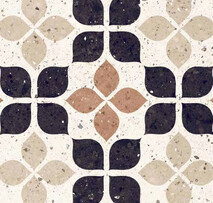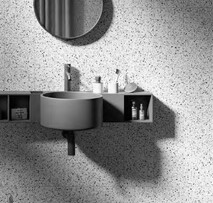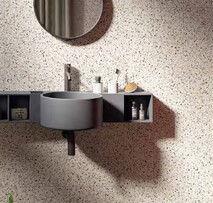Here are some helpful tips before starting
Keep some spares
Always pays to make sure you keep a few spares
Same batch number for the same area
Always make sure the same batch number is used in the same area. If you are using a tile in two different areas then different batch numbers can be used in each of the areas.
Always allow for wastage
When estimating quantities don’t forget to allow for wastage
Ensure your quote allows for wastage
If ordering tiles based on your tilers quote check whether they have allowed for wastage
Order A grade tiles
Make sure you are ordering A Grade tiles. Tiles can vary in thickness and dimension. A Grade tiles will be the most consistent; anything else will likely have variation that will make the laying process difficult and more expensive.
Allow time for availability
Give yourself plenty of time. Although the tiling is one of the last in the process, it's advisable to make your decision reasonably early to give you a better chance of having your chosen tiles available when your tiler needs them, and all from the same batch.
Does your quote include grout sealing?
Check whether your tiler has quoted to seal the grout. If not, you'll want to make sure this happens.
Tiles can be laid in more that one way
A rectangle tile, laid vertically, will make the space it’s laid in appear longer. Vertically laid tiles can make a low ceiling look higher.
We have samples of the fabulous Tin Tile which I know everyone will love. Available in 3 stunning colours this tile will add a touch of glam to any space.
Borrow your sample today!
The colour pink is making a comeback! If you like it a little or even a lot we have something for you. Borrow your sample today and you're on your way to a whole new look.
What is the difference between ceramic and porcelain?
The fundamental difference between ceramic tiles and porcelain tiles is in the technology behind their production. Porcelain are less porous making them a bit more durable and can be made in very large sizes, they're suitable for high traffic locations such as airports or shopping malls. Ceramic tiles are made from a mixture of clay and some minerals. Due to the slight variations and irregularities, they can have a more interesting aesthetic.
What are all the different finishes?
- Matt has a matt surface
- Satin Smooth/silky matt surface
- Polished/semi-polished Machine polished for a shiny, reflective finish.
- Glazed A glaze is applied to give the tile a hard non-porous surface. Glazes can have a matt, semi-gloss or gloss finish.
- Roccia or structured A finish with ridges and dips in the surface of the tile.
- Grip A sandpaper like finish, usually used on outdoor tiles.
What is the difference between glazed and unglazed tiles?
Glazed and unglazed tiles are made the same way except that glazed tiles have a glass layer (glaze). The glaze provides an unlimited array of colors and designs & protects the tile from staining.
Unglazed tiles are very similar except their surface is not coated. Unglazed ceramic tiles do not show wear because their color extends throughout the tile, making them ideal for commercial applications.
Can I take home a sample?
Yes – we recommend that you borrow samples to take home so that you can match to your lighting, and colours.
Are there low-allergy options?
Tiles are a great option if you have concerns about allergies and asthma. They don’t build up dust and dirt, support mould or mildew.
Can floor tiles be installed on walls? Or vice versa?
In most cases, wall tiles are thinner, lighter and softer than floor tiles and the glazes are not designed for foot traffic. Most floor tiles can be laid on a wall but keep in mind the size and weight of the tile. Please check with us first and we'll let you know the best tiles to use.
What are mosaic tiles?
Mosaic tiles tend to be smaller, they can be produced from porcelain, glass, stainless steel, glazes porcelain or ceramic tiles. Mosaics are available in a variety of shapes like octagonal, circular, or fish scale. They can be installed individually or can be found pre-mounted on mesh.
Can I choose the grout or mortar colour?
Yes – it's really important for you to tell your tiler the grout or mortar colour you'd like to use. Grout or mortar colour really changes the appearance of your tiles – it's up to you if you choose to contrast with your tiles or go for a more subtle look by matching your tiles.
Do you have a delivery service?
We can organise delivery through a freight company for you.
Do I need to choose a morter colour?
Your tiler can advise you on a morter colour or you might decide to choose a contrasting shade or colour to accentuate your tiles.
Whats the best tile for a splashback?
You can use ceramic, porcelain, or even glass tiles to create a unique backsplash.
Can floor tiles be installed with underfloor heating?
Yes – tiles are good heat conductors and work well with underfloor heating. If you're considering underfloor heating, we can tell you which tiles are best suited.

